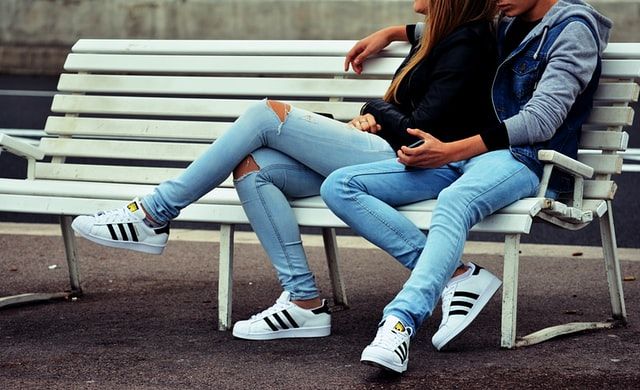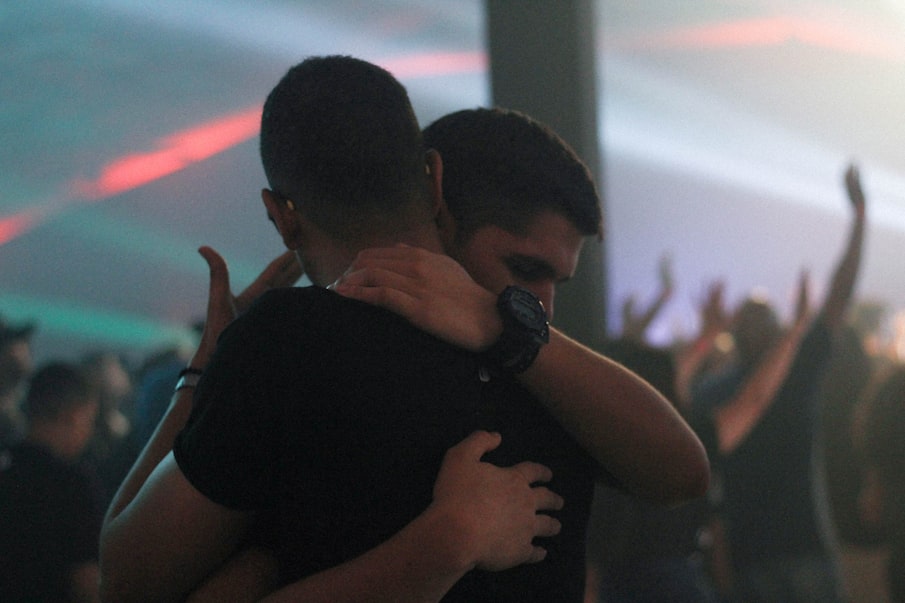Relationship expert James Thomas shares why starting off as friends before dating isn’t always a recipe for success
Online dating. Apps. Speed dating. It feels like there has never been more ways to meet potential partners and, yet, research shows most romantic relationships stem from friendships. While dating during quarantine presented a whole new host of challenges for our romantic lives and staying safe while new variants are popping up creates new obstacles, recent research has suggested that most relationships are starting closer to home.
A meta-analysis of seven studies published in Social, Psychological, and Personality Science in July revealed that 66% of people are platonic friends with their significant other prior to starting a romantic relationship and falling in love. Study authors say that “friends-first initiation is a prevalent and preferred method of romantic and relationship initiation that has been overlooked by relationship science.”
But is dating your friends a guaranteed success? Or are there unexpected pitfalls we may be overlooking? We spoke with relationship expert at Condoms.uk, James Thomas, to find out more about the ups and downs of dating a friend.
Sex can change things
Friendships can be a strong basis for romantic relationships, but it’s worth asking yourself: is it worth the risk of changing your friendship dynamics? James explains: “When you date your best friend, sex changes the dynamic of your relationship. Once you see someone in an intimate setting, it will be difficult to see them in the same way again. Allowing yourself to be vulnerable with someone is always a risk, but if they are your best friend, you will have more at stake. Also, if it doesn’t work out romantically, it can be hard to see them move on sexually with someone else.”
The risk of jealousy
Experiencing mild levels of jealousy can be a healthy part of a relationship. But when you intimately know each other’s dating history and flaws before you start dating, can that have a downside?
“Jealousy in any kind of relationship is healthy, but if you were once friends, it can intensify. Chances are you know your friend’s romantic history. You need to know how to navigate the habit of being triggered by their past and vice versa. Being honest and open is key.”
What if you’re disappointed?
Every new relationship has a period of excitement (and even anxiety) at the newness of things. But does knowing your partner before things turn romantic risk tarnishing this shiny, new stage? As James explains, romance isn’t always spontaneous. Sometimes, we need to ensure we’re both doing our best to make romance a priority.
“As you start to see your friend in a new light, you might hold different expectations from them. You might already be in a comfortable phase of your relationship, messy hair, and no toilet manners, which is killing the honeymoon period. You must treat the relationship like a brand-new situation, date nights and chivalry must remain at the forefront.”
It’s just not exciting
With the average friendship lasting between seven and 10 years, that’s potentially a lot of time to get to know each other before things turn to romance. As James explains, knowing too much about each other might be detrimental to the start of your romantic relationship.
“In a relationship, it’s important to learn a lot about each other at the start. This is to discover common interests and start new adventures together. However, you might already have favourite places to go to as friends and know their hobbies and habits. This could develop boredom in the early stages of the relationship unless an effort is made to try something new.”
Overlooking red flags
We’ve all heard of relationship red and green flags, but can friendship make us blind to our friends' flaws? Potentially.
“When you first start speaking to someone, it can be easier to spot red flags early on. With your friend, it might be harder to see their flaws and you’ll let things slip that you normally wouldn’t. As you’ve known this person for a while, you won’t be filtering them as you would your new first date. Even though you might know your friend like the back of your hand, dating someone will reveal their different side. If you’re not careful, you can let someone in who doesn’t share the values you desire in a partner.”

Is a romantic relationship what you really need right now?
For many, the desire for companionship and the need to dispel feelings of loneliness can push us towards dating and relationships before we are truly ready. Counselling Directory member and Counsellor, Rebecca Mitchell, explains more about why ensuring you have close friends is more important than focusing on new romantic relationships.
“Always date when you are in a community and have established some of your own personal life and contacts. Dating without a support system leaves you extremely vulnerable. Going out in a group of friends before you make any commitments is a good plan as there is less pressure and it is good to see if you can fit into each other’s lives.
“People think a relationship will be a cure for personal loneliness, but the cure for loneliness is creating a community around us of friendship and support. Focus on building your friendships first and then dating can come later, when you are secure in your friendships. Take your time. Coming from a place of being in community and having good friends is a strong, healthy place to start dating.”
Loneliness can affect anyone, at any time. While for some it will only last moments, for others, it can linger, having a more sustained impact socially (when we lack a wider group of friends and colleagues) or emotionally (when we miss a specific person, such as a partner or best friend). We’re naturally social creatures, craving companionship and compassion. Loneliness can lead to feelings of disconnect and isolation, increasing our risk of other health conditions and even leading to other mental health issues.
If you're worried loneliness may be having a negative impact on you, it’s important to look after yourself, take things slowly, and work towards making new connections. Opening up can be tough, but is the first step towards finding a support system to help you feel more connected, and to help you avoid making decisions that could have a negative impact on your overall wellbeing.
To find out more about what support is available and to find therapists who can help, visit Counselling Directory.


Comments